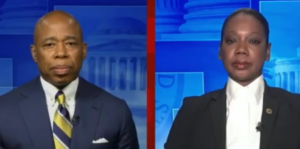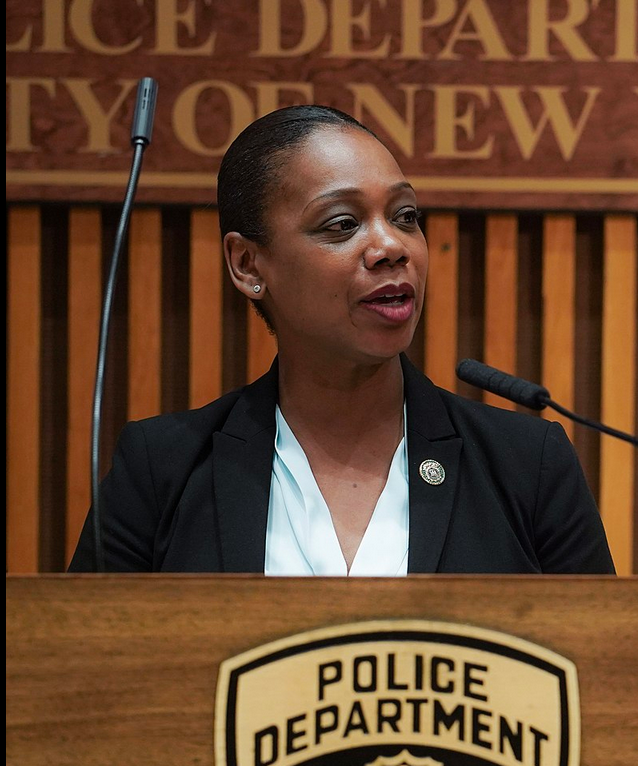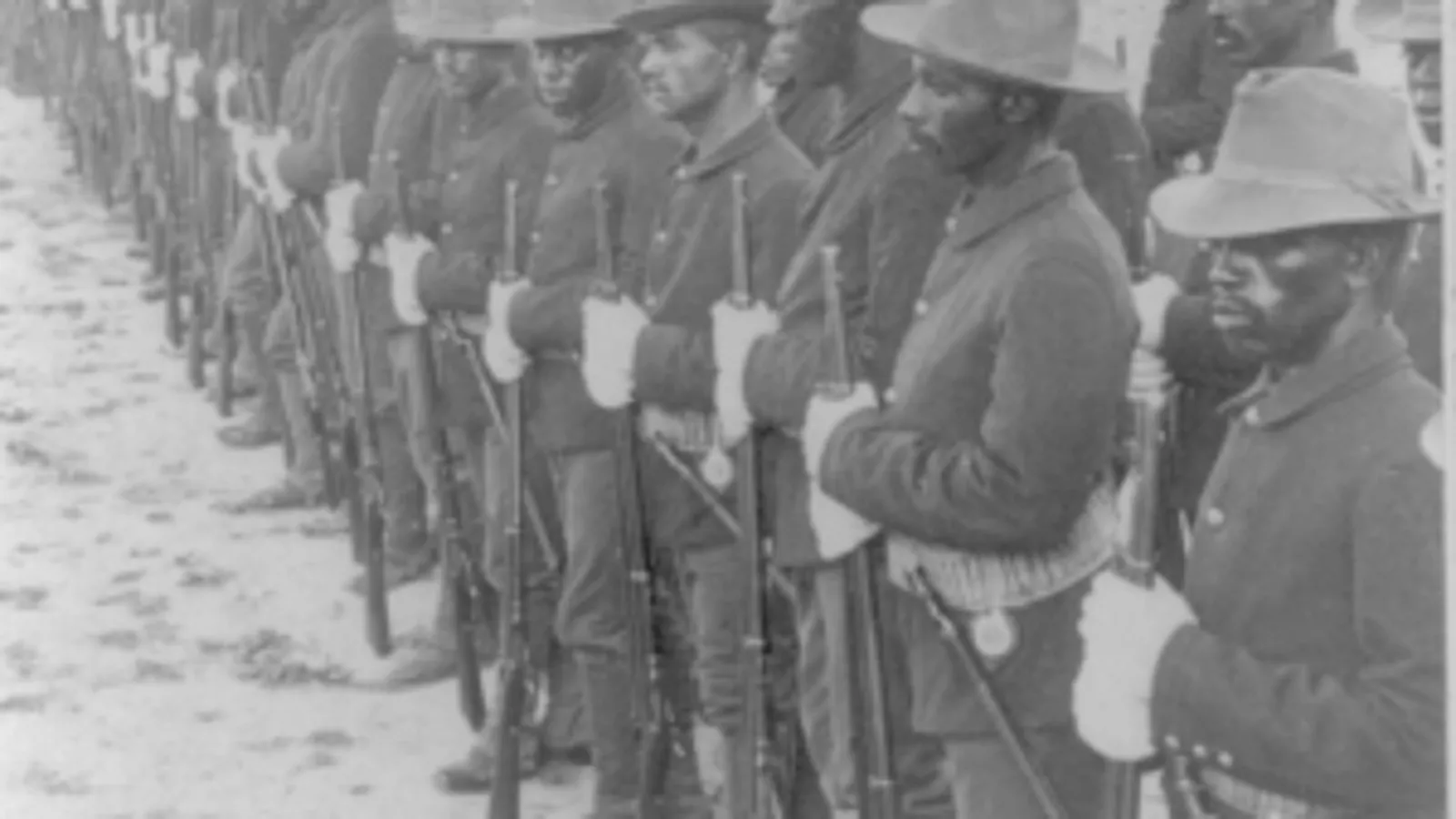Photos: YouTube Screenshot\Wikimedia Commons
On Monday, news broke of the sudden resignation, after 18 months, of New York City’s first Black female police commissioner, Keechant Sewell. There is much speculation regarding her abrupt departure with some sources saying her authority was constantly being undermined by the toxic male environment within the NYPD.

One New York Post article said Sewell was being particularly hampered by the micro-managing of her boss Mayor Eric Adams.
The Post story claims that “Sewell already had little power but lost more ground after approving discipline against Chief of Department Jefferey Maddrey, the NYPD’s highest-ranking uniformed officer.”
Sewell was reportedly thwarted in her attempt to impose discipline upon Maddrey for his actions in trying to coverup the conduct of another cop, Krythoff Forrester–who had purportedly pulled a gun on three children (ages 12, 13, and 14) in Brooklyn.
Sewell’s resignation also follows a report last week by federal monitors which stated that the NYPD’s Neighborhood Safety Teams routinely, and unconstitutionally, stop New Yorkers without legal justification.
The report states “Despite training and experience, NST officers overall appear to be stopping, frisking, and searching individuals at an unsatisfactory level of compliance. Too many people are stopped, frisked, and searched unlawfully. At the precinct level, sergeants, lieutenants, and commanding officers fail to identify and correct the unconstitutional policing. The Department’s oversight of these unlawful NST stops, frisks, and searches is inadequate at all levels. Although policies and training are in place to address these issues, without accountability in the field and at all levels within the Department, the level of compliance will not improve.”
The NYPD, not surprisingly, continues to avoid taking any responsibility for the unlawful behavior of those abusing the power of their badges. The NYPD pushed back at the federal monitors’ report saying their tactics “have been instrumental in the reduction of shootings and homicides.”
New York Public Advocate Jumaane Williams released the following statement after Sewell’s resignation:
“The sudden departure of Commissioner Sewell leaves open questions to be answered about what it means for public safety and policing in our city. While I have many areas of disagreement on issues with her and the administration she was appointed by, I found her to be attentive and responsive to some of these issues raised.
“Commissioner Sewell was brought into an environment where crime was up, public distrust of law enforcement was high, and department morale was low. Her appointment, especially as a Black woman, was inspiring for many, but it was not a panacea. That these challenges did not immediately resolve in her tenure says more about the pervasiveness of these problems than her leadership.
“It is clear that from One Police Plaza to Rikers Island, there are longstanding patterns which enable damaging practices around transparency, misconduct, misuse of tactics, and an inability to address this harm. I hope that the next person to take this role is ready to be a true partner in public safety, who recognizes the role police play without inflating it, and is willing to sincerely adopt greater transparency and meaningful accountability. Unless there is real commitment to building new systems, rather than reviving failed ones, the next Commissioner will be bound by the prevailing and repeated patterns of unnecessary tension around public safety, violence and how law enforcement is used.”







Comments are closed.